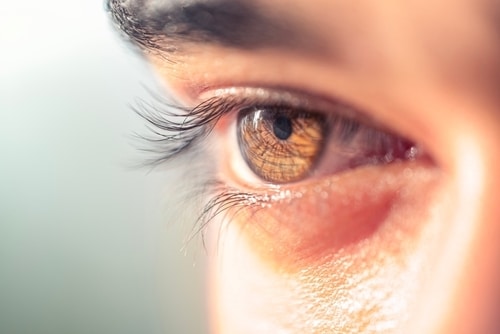Diabetes is a chronic condition that affects millions of people worldwide. While most individuals are aware of the potential complications of diabetes related to the heart, kidneys, and nerves, many do not realize the significant impact diabetes can have on eye health. Uncontrolled blood sugar levels can lead to serious eye conditions that may result in vision loss or blindness. In this blog, we will explore how diabetes affects your eyes and provide essential prevention and management tips to protect your vision.
Understanding Diabetes and Its Impact on Eye Health
Diabetes affects your body’s ability to produce or use insulin effectively, leading to elevated blood sugar levels. Over time, high blood sugar can damage blood vessels throughout the body, including those in the eyes. Several eye conditions are commonly associated with diabetes, including:
- Diabetic Retinopathy Diabetic retinopathy is the most common diabetes-related eye disease and a leading cause of blindness in adults. It occurs when high blood sugar levels damage the tiny blood vessels in the retina, the light-sensitive tissue at the back of the eye. There are two main stages of diabetic retinopathy:
- Non-Proliferative Diabetic Retinopathy (NPDR): In this early stage, damaged blood vessels may leak fluid or blood into the retina, causing swelling and the formation of deposits called exudates. Vision may be unaffected or only mildly impaired.
- Proliferative Diabetic Retinopathy (PDR): In this advanced stage, new, abnormal blood vessels grow on the retina’s surface. These vessels can bleed into the vitreous, the gel-like substance that fills the eye, causing vision loss or blindness. Scar tissue from these vessels can also lead to retinal detachment.
- Diabetic Macular Edema (DME) Diabetic macular edema occurs when fluid leaks into the macula, the central part of the retina responsible for detailed vision. This swelling can cause blurred or distorted vision and is a common cause of vision loss in diabetic retinopathy patients.
- Cataracts People with diabetes are at a higher risk of developing cataracts, a condition characterized by clouding the eye’s natural lens. Cataracts can cause blurry vision, glare, and difficulty seeing at night. While cataracts can be surgically removed, the risk of developing them is higher in individuals with diabetes.
- Glaucoma Diabetes increases the risk of glaucoma, a group of eye conditions that damage the optic nerve, leading to vision loss. The most common form, open-angle glaucoma, is associated with increased intraocular pressure (IOP). If left untreated, glaucoma can cause irreversible damage to vision.
Prevention Tips for Diabetes-Related Eye Conditions
Preventing diabetes-related eye conditions involves managing blood sugar levels, maintaining a healthy lifestyle, and scheduling regular eye exams. Here are some key prevention tips:
- Control Blood Sugar Levels Keeping blood sugar levels within the target range is crucial for preventing damage to the blood vessels in the eyes. Work with your healthcare provider to develop a diabetes management plan that includes medication, diet, and exercise.
- Monitor Blood Pressure and Cholesterol High blood pressure and cholesterol levels can exacerbate diabetes-related eye conditions. Regularly monitor and manage these levels through medication, diet, and lifestyle changes to reduce the risk of complications.
- Adopt a Healthy Diet A balanced diet rich in fruits, vegetables, whole grains, and lean proteins can help manage blood sugar levels and support overall eye health. Foods high in antioxidants, such as leafy greens and berries, can protect the eyes from damage.
- Exercise Regularly Regular physical activity helps regulate blood sugar levels, reduce blood pressure, and improve overall health. Aim for at least 30 minutes of moderate exercise most days of the week.
- Avoid Smoking Smoking increases the risk of diabetes-related complications, including eye conditions. If you smoke, seek support to quit, and avoid exposure to secondhand smoke.
Schedule Regular Eye Exams Early detection of diabetes-related eye conditions is essential for preventing vision loss. Schedule comprehensive eye exams at least once a year, and more frequently if recommended by your eye care professional.
Management Tips for Diabetes-Related Eye Conditions
If you have been diagnosed with a diabetes-related eye condition, effective management is critical to preserving your vision. Here are some key management tips:
- Follow Your Diabetes Management Plan Adhering to your diabetes management plan is essential for controlling blood sugar levels and preventing further damage to your eyes. Take prescribed medications, monitor blood sugar levels, and follow dietary and exercise recommendations.
- Monitor Vision Changes Be vigilant about any changes in your vision, such as blurriness, floaters, or dark spots. Report any changes to your eye care professional promptly, as early intervention can prevent further damage.
- Undergo Regular Eye Screenings Regular eye screenings are crucial for monitoring the progression of diabetes-related eye conditions. Your eye care professional may recommend additional tests, such as optical coherence tomography (OCT) or fluorescein angiography, to assess the health of your retina.
- Consider Treatment Options Several treatments are available for managing diabetes-related eye conditions, including:
- Laser Therapy: Laser treatments can seal leaking blood vessels, reduce swelling, and shrink abnormal blood vessels in the retina.
- Intravitreal Injections: Medications injected into the vitreous can reduce inflammation and swelling, improving vision in cases of diabetic macular edema.
- Vitrectomy: This surgical procedure removes blood and scar tissue from the vitreous, helping restore vision in advanced cases of proliferative diabetic retinopathy.
- Protect Your Eyes Protect your eyes from further damage by wearing sunglasses that block UV rays and using protective eyewear during activities that could cause eye injury.
- Maintain a Healthy Lifestyle Continue to prioritize a healthy lifestyle by eating a balanced diet, exercising regularly, and avoiding smoking. These habits can support overall health and reduce the risk of further complications.
Conclusion
Diabetes can have a profound impact on your eye health, leading to conditions such as diabetic retinopathy, diabetic macular edema, cataracts, and glaucoma. However, with proper prevention and management strategies, you can protect your vision and reduce the risk of complications. By controlling blood sugar levels, maintaining a healthy lifestyle, and scheduling regular eye exams, you can preserve your vision and enjoy a higher quality of life.
If you have diabetes, it is essential to prioritize your eye health and work closely with your healthcare provider and eye care professional. Early detection and intervention are key to preventing vision loss and maintaining healthy eyes. By following the tips outlined in this blog, you can take proactive steps to safeguard your vision and manage diabetes-related eye conditions effectively. Remember, an organized approach to your health can lead to a brighter and clearer future.

